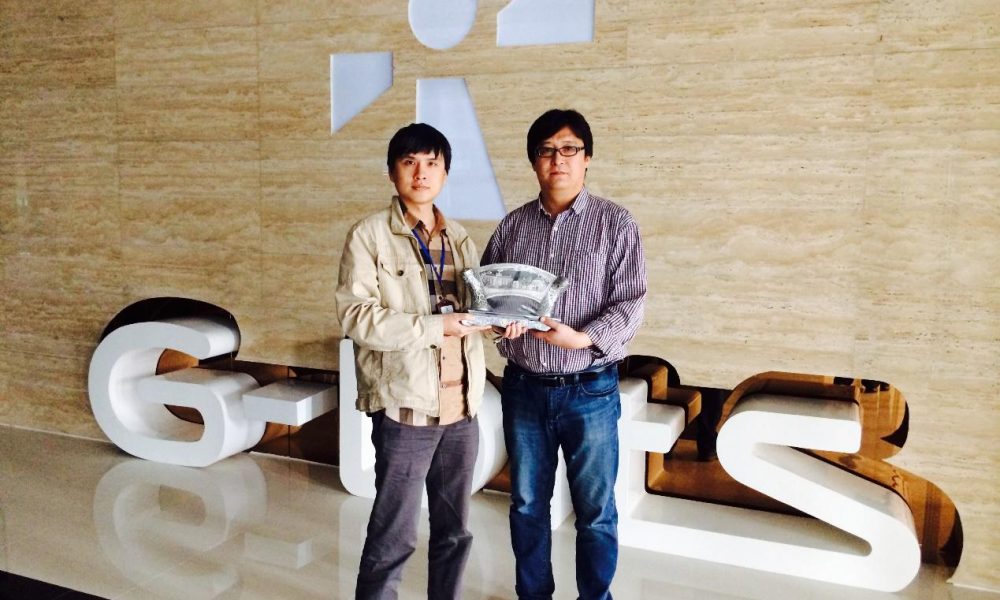Category: Business
Carousell buys Duriana to consolidate position as largest mobile classified marketplace in APAC
Singapore-based P2P marketplace Carousell announced today that it has acquired Duriana, a Malaysian-based mobile classifieds startup, in part to position itself as a major mobile classifieds player in the market.
After the acquisition, Duriana customer base of 600,000 users will be migrated to the Carousell platform, where they can continue buying and selling online as part of a larger global community. Financial terms of the deal were undisclosed.
“We saw that Duriana users had similar demographics and interests in buying and selling fashion items, gadgets, and electronics as well as home furnishing,” said Quek Siu Rui, the co-founder and CEO of Carousell. “By bringing Duriana users onto the Carousell platform, we’re helping more people buy and sell their preloved items quickly and easily.”
This would make Duriana the third acquisition of Carousell in less than six months since their US$35 million Series B round led by Japanese e-commerce giant Rakuten Ventures which has brought its total aggregate equity funding raised to an estimated US$41.8 million.
This also signals a growth strategy of becoming a major global mobile classifieds marketplace, following the last acquisition of online car marketplace Caarly in October 2016.
“This acquisition accelerates our international growth and strengthens our position as the largest mobile classified marketplace in Malaysia with over five million listings,” Quek explained.
“It also builds on our strong growth in the Philippines, our fastest market to reach over half million listings, and positions Carousell as the leader in the Philippines mobile classifieds industry just four months after our official launch in the market,” he further added.
Founded in October 2014, Duriana is a mobile marketplace for all things beautiful. The Malaysia startup has previously raised about US$3.3 million funding from investors – Alps Ventures and Beenos, which following this deal will provide an exit for both investors.
On the other hand, Carousell since its launch in August 2012, has been growing rapidly in the country, expanding to 19 cities in seven countries, including its recent entry to Hong Kong, Philippines, and Australia. The startup also claims to have over 57 million listings and over 23 million items sold as of Q4 2016.
Commenting on the acquisition, co-founder and CEO of Duriana, Saeed Gouda said that, “It’s been an exciting three years with Duriana, and we’re proud to have brought the company to this stage. After this exit, we’re looking forward to pursuing a new adventure. Carousell is shaking up the mobile classifieds space, and we’re confident that Duriana users will enjoy buying, selling and connecting as part of the vibrant Carousell community.”
By Vivian Foo, Unicorn Media
Chinese online gaming firm G-bits Network Technology raises US$138 million in IPO
G-bits Network Technology Co. Ltd., a Chinese online gaming company backed by IDG Capital Partners and Fortune Capital, has completed its initial public offering (IPO) on the Shanghai Stock Exchange (SSE), raising an amount of 961 million yuan (about US$138 million).
Upon completing its IPO on the China’s A-share market, the Xiamen-based company is now valued at 5.5 billion yuan (about US$791 million).
The Chinese gaming firm has also set a record being the first online gaming company to complete an IPO on the Chinese A-share market. Other online gaming companies listed on the domestic stock exchanges were via reverse mergers previously.
Founded in 2004, G-bits is one of the leading online game developers in China, developing and producing massive multiplayer online games, which includes Underground Castle, Unbelievable Maze, and virtual reality-enabled games.
Besides, its portfolio also includes Asktao, the company’s first 2D TBS online game, which was approved as the green online game for teenager by China’s Ministry of Culture in 2006.
The company claims to have net earnings of 600 million yuan in 2016, which translates to approximately US$87.2 million
IDG Capital holds over 10% stake in G-bits currently,having invested in its series A funding round back in 2007. While Fortune Capital and the direct investment arm of Ping An Insurance invested 160 million yuan (about US$23 million) in the company in 2011.
By Vivian Foo, Unicorn Media
TempoGo raises US$825k in seed funding round led by K2 Capital
TempoGO, an Internet of Things (IoT) and SaaS solutions provider for commercial transportation has secured a Rs 5.6 crore (about US$825k) seed investment recently.
The round was led by Hong Kong-based K2 Capital Group along with the participation of a network of several high net worth individuals (HNI) Hong Kong-based investment bankers.
The latest capital will be mainly used to upgrade the technology as well as hiring more professionals to add to the existing 15 employees in the company.
Founded in 2015 and operated by Carryage Technologies Pvt Ltd, the Mumbai-based startup provides IoT and Saas solutions for the transportation industry using an integrated platform that connects vehicles, people, and trips, improving the productivity of a commercial vehicle fleet, either by passenger or freight.
“With the second-largest road network in the world, India has over 8 million commercial transportation vehicles that drive across the length of 4.7 million kilometers of roads. But unbelievably, nearly 75 percent of these do not yet leverage technology,” said Pranav Shirke, the co-founder, and COO of TempoGO.
TemporGO’s platform consist of two layers, one powered by Internet of Things (IoT) sensors on vehicles and another by software-as-a-service (SaaS).
The IoT layer comprises a GPS-based hardware unit, which includes a built-in vehicle immobiliser that tracks vehicle location and speed and a sensors-set., plus an OBD 2 adapter to automatically record and transmit engine data as well as vehicle behaviour including sudden acceleration or deceleration. Besides, it also monitors the ‘Door-open’ and temperature variation status of the load-bay,
On the other hand, the SaaS layer includes Trip Management and Fleet Management software and a dashboard for actionable business intelligence using data analytics.
Over the past 12 months, the TempoGo solution claims to have been proven on over 1,800 inter-city trips in India covering 650,000-plus kilometers, for 300 clients including Bisleri, Blue Dart, Oyo Rooms and Havells.
Aaditya Goyal, the Head of Technology at TempoGO says, “We are a unique combination of IoT sensors (GPS, temperature, door closing) on the vehicle plus a SaaS platform. This allows simple answers to key questions: Is my driver driving dangerously or at high speeds? Or pilfering fuel? Is he adhering to pre-decided routes? What state is my cargo in? Did the temperature inside my cold-chain container vary? When should I take them in for maintenance? How can I reduce vehicle insurance premiums?”
TempoGO’s has a range of clients from freight transport companies, cold-chain companies, logistics companies, distribution companies with their own vehicles, bus or taxi operators, corporate employee or school bus fleets.
TempoGo was incubated at Goa-based Prototyze, which has catalysed other funded companies, including a mobile fitness company – MobieFit, a Saas-based mobile platform for corporate training – HandyTrain, and Seynse, a financial technology company that operates a digital lending platform called Loan Singh.
By Vivian Foo, Unicorn Media
Warburg-backed e-Shang Redwood closes US$300 million investment in run up to IPO
A consortium of mainland China investors has invested US$300 million in Warburg Pincus-backed Asian logistics real estate developer e-Shang Redwood (ESR), as the company prepares for a potential initial public offering (IPO) this year.
The named investors for the pre-IPO round consist of top-tier mainland finance firms which include Hong Kong-based GF International Investment Management Ltd., Huarong International, Huarong Rongde, SPDB International, China Everbright Ltd., Everbright Securities and CMBC International.
As per details of the IPO, the company has since the beginning of 2016, been reportedly seeking an initial public offering in Hong Kong to raise around US$1 billion.
“Modern warehousing will continue to benefit from the rapid development of e-Commerce and the transformation of the retail sector in Asia and we believe ESR is well-positioned to further enhance its strong leadership position,” said Elyn Xu, Head of Structured Finance for GF Holdings, a Hong Kong affiliate of mainland-based brokerage GF Securities.
ESR was formed in January 2016, as the result of an all-stock merger between the Shanghai-based developer and operator of warehouses, e-Shang Cayman with Singapore-based logistic fund manager, The Redwood Group. The partnership was aimed to create one of the largest logistics real estate platforms in Asia.
Leveraging on the rapid growth of e-commerce in Asia, ESR has since then quickly built a 6.5 million square meters of projects in operation or under development in China, Japan, and South Korea with another over 6 million square meters in pipeline.
Prior to the latest round of investment, the company’s existing list of backers also comprise supports of major institutional investors which include Warburg Pincus, CPPIB, APG, PGGM and Goldman Sachs.
“2016 has been a very strong year for us with the completion of the Redwood merger, the substantial increase in development starts in our core markets of China, Korea, and Japan on the back of robust market demand from our best-in-class tenant relationships and the establishment of new financing institutional relationships in each of our market,” said Jeffery Shen, the co-CEO of ESR.
“The company is well-positioned to further accelerate its growth and solidify its market leading position across Asia over the next few years,” he further adds.
The company last secured a US$ 300 million commitment in July 2016 from Ping An Real Estate, the real estate investment and asset management platform of Ping An Insurance Company of China, Ltd. The purpose of the funding was for the development of logistics projects in Japan.
By Vivian Foo, Unicorn Media
China’s Sogou targets IPO at US$5 billion valuation to rival Baidu
China’s third-biggest search engine Sogou is expected to hold a U.S. initial public offering this year, according to a report by Bloomberg, based on its interview with Sogou CEO Wang Xiaochuan.
The IPO of Sogou, a subsidiary of Chinese internet giant Sohu.com (SOHU) is likely to release about 10 percent of its total share to the financial market in the United States at a market valuation of US$5 billion.
It is also reportedly said that Sogou, whose name translates as search dog, is planning to use part of the IPO proceeds to improve search results by backing companies developing artificial intelligence. Despite so, the company is yet to formally hire investment bankers to run the listing.
Though Sohu remains the leading investor, Sogou is also backed by Tencent after the China Internet service portal giant paid US$448 million for a 36.5% stake in the Sohu unit. In 2013, Tencent Holdings (TCEHY) and Sogou merged their search engine technology and services to better compete against China search leader Baidu.
According to Bloomberg, Baidu held a 44.5% share of mobile search queries in the third quarter, followed by Alibaba-backed Shenma at 20.8% share and Sogou at 10.2%.
But while Baidu remains the biggest provider across all platforms in China, it is under siege after a scandal over a medical advertising incident, giving smaller rivals including Sogou and Qihoo 360 Technology the opportunity to win over mobile users.
“Over the past year, we’ve seen a trend where people are finding themselves not trusting Baidu as much and some are even seeking a replacement,” Wang Xiaochuan, the CEO of Sogou since 2010 explained.
“So over the next year or two, as more people feel more comfortable with Sogou they’ll realise it is able to replace Baidu,” he adds.
At present, Sogou is the only search engine formally allowed to crawl through the published messages on Tencent’s WeChat platform, which has more than 800 million users.
The Tencent-backed search engine is also signing deals with device makers to ensure more smartphones are shipped with its software already installed, adopting a successful strategy previously used by microblog Weibo.
Sogou is also launching new search services aimed at bringing foreign results to Chinese audiences. By using translation technology, its customers will be able to search the English-speaking web with Mandarin search terms that will automatically translate the content back into Chinese.
“This is a turnaround year for us,” Wang Xiaochuan said.
With its IPO in planning, shares in Sohu increased by 4.9% to US$35.54 in New York on Tuesday, retaking its 50-day line for the first time in more than two months.
By Vivian Foo, Unicorn Media





